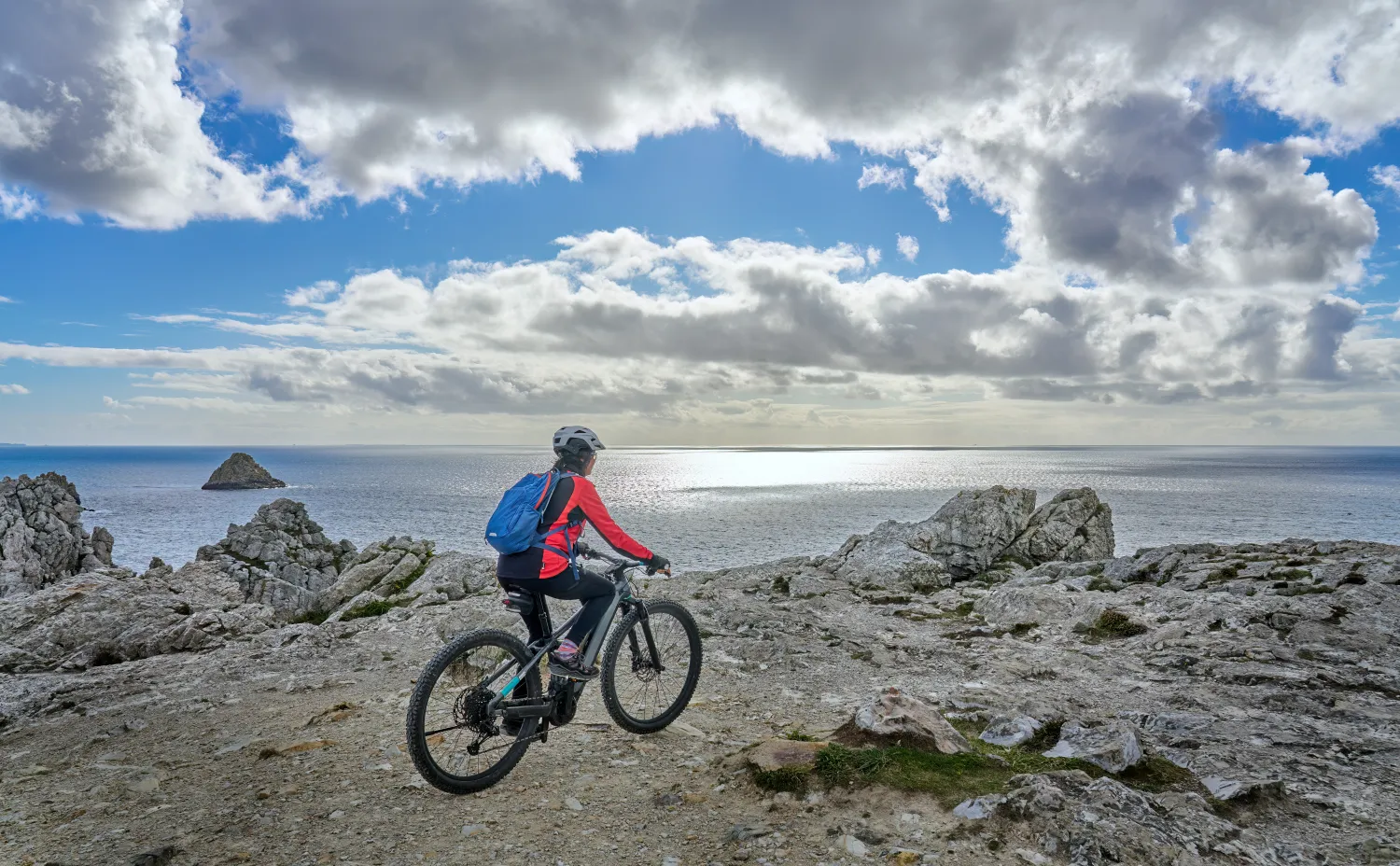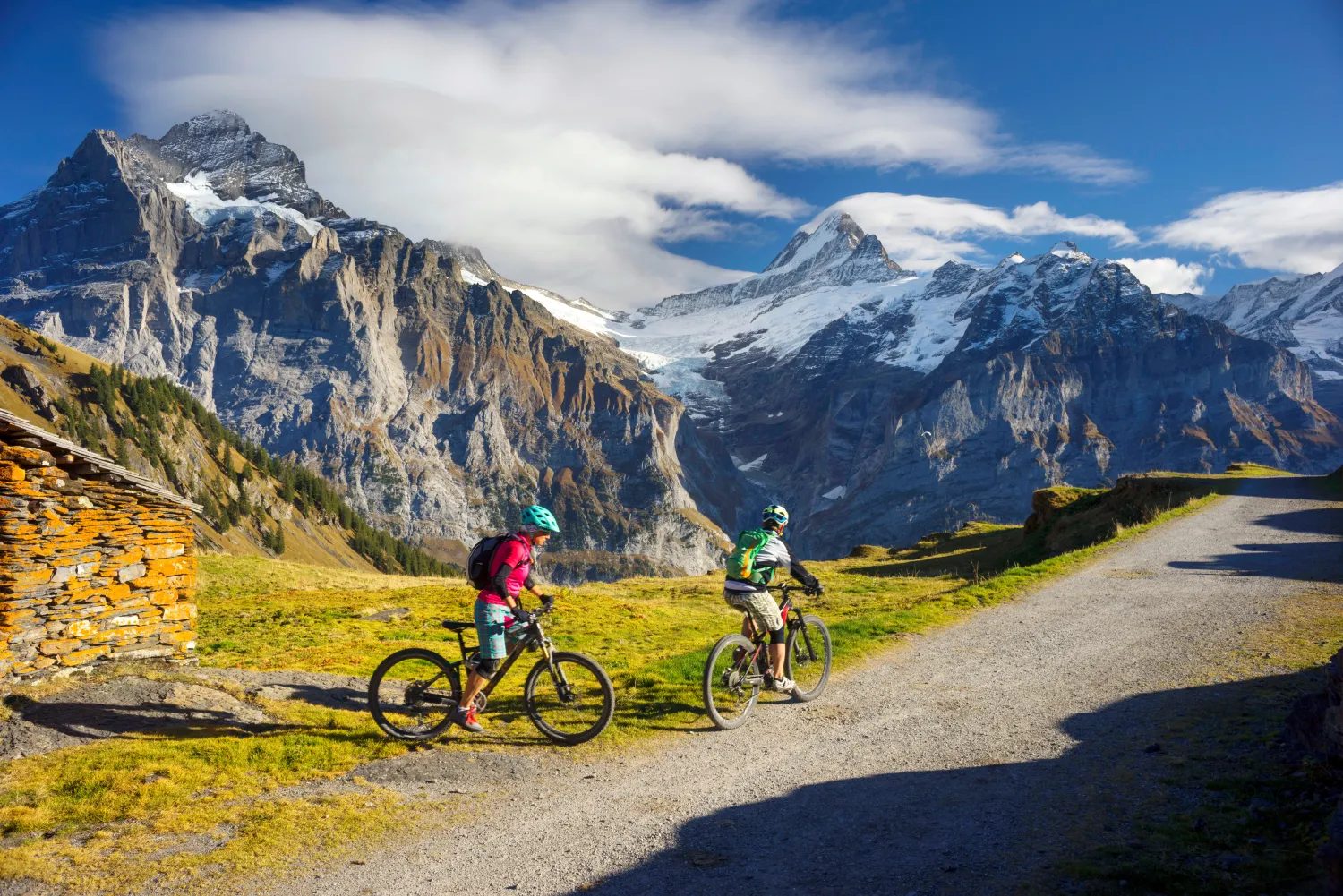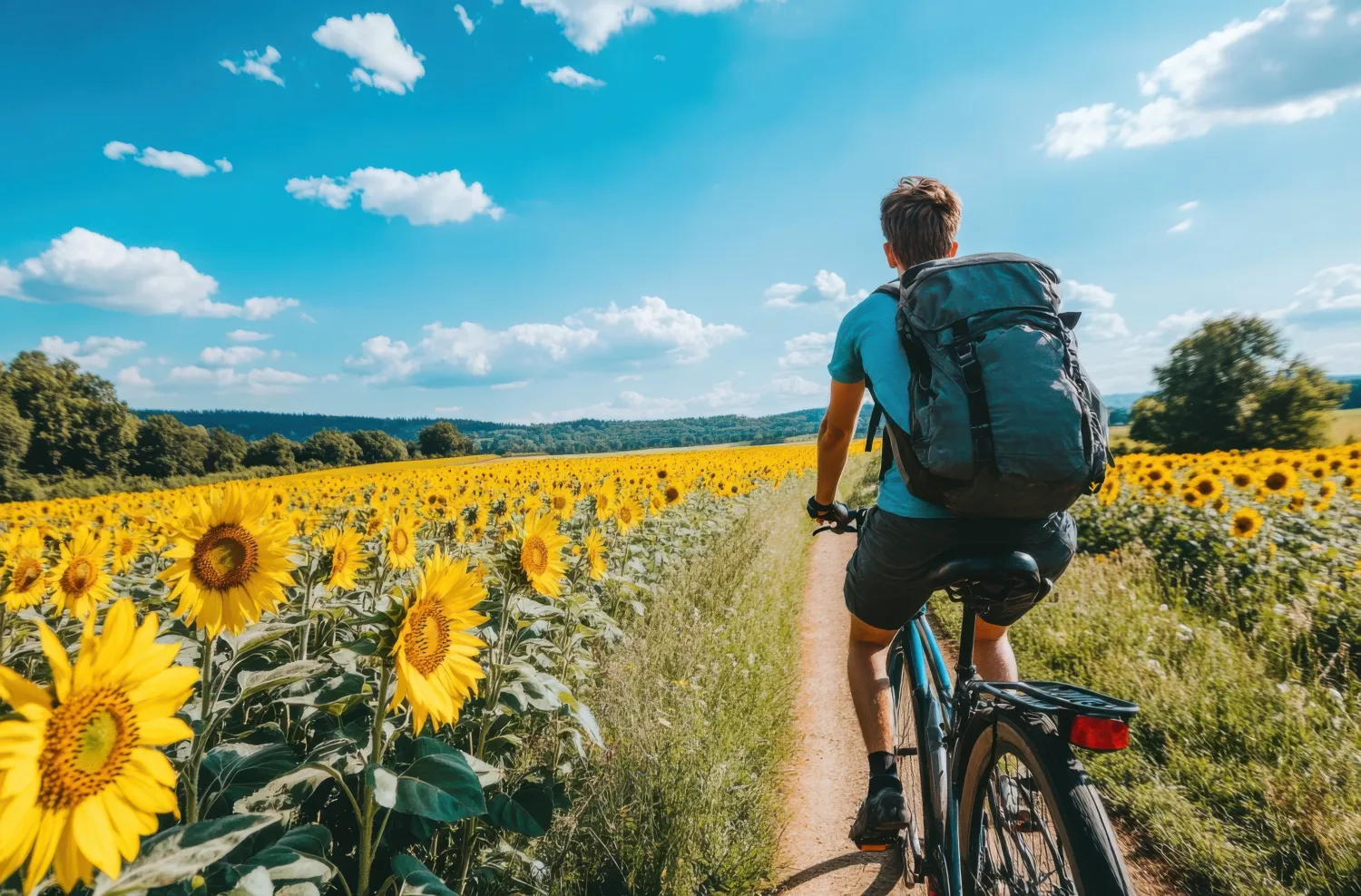Tourism is changing its face. Gone are the days of timed vacations, frantic city breaks, and meticulously planned itineraries. In 2025, travelers are swapping the frenzy of to-do lists for more authentic experiences, where time becomes a luxury. This is where slow travel steps in—not as a passing trend, but as a true travel philosophy.
It’s no longer about collecting destinations like trophies but about savoring each place, each encounter, each moment. Traveling slowly means giving purpose to the journey by choosing quality over quantity. It’s about traveling less often, but better. What if, this year, you rethought your way of exploring the world?
Travel less, but better: the promise of slow travel
Slow travel stands in stark contrast to the frantic tourism of recent decades. While traditional itineraries rush through visits like checkboxes on a list, slow travel encourages you to slow down. Forget about domestic flights, impersonal hotels, and whirlwind tours. Instead, it favors trains, cycling trips, and walking routes, with thoughtfully planned stops that embrace taking your time.
The journey itself becomes an essential part of the adventure. Taking a regional train through Provence, cycling along the Basque coast, or leisurely driving down a scenic backroad is already a form of travel. Landscapes unfold, thoughts settle, and minds open. Upon arrival, you stay for days—sometimes longer. There’s no rushing to leave at dawn: slow travel means immersing yourself in local life, giving yourself the time to truly understand the place.
Accommodations play a key role. Standardized hotel chains give way to guesthouses, cottages, and small independent hotels often run by passionate hosts. Here, you’ll be pointed toward the best local market, a hidden cove, or a family-owned restaurant. Connections are made, stories are shared, and the region is discovered from a new perspective.
Ultimately, slow travel is about traveling as you breathe: slowly, deeply, savoring each moment.
Why is slow travel booming in 2025?
Slow travel resonates in 2025 because it aligns with three major aspirations of today’s travelers: preserving the environment, reclaiming genuine well-being, and embracing the flexibility of remote work.
Travel less, but better: putting environmental impact at the heart of travel choices
The climate crisis is reshaping how we travel. Air travel, responsible for about 2.5% of global CO₂ emissions, is becoming a luxury many are unwilling to indulge in for short trips. Domestic flights, in particular, are being swapped for trains, carpooling, or even cycling for the more adventurous.
This growing awareness encourages travelers to opt for longer, more responsible stays. Rather than scattering multiple getaways throughout the year, they choose one carefully planned annual trip. This approach not only reduces carbon footprints but also eases the burden of over-tourism on popular destinations.
“Secondary” destinations—those away from the crowded tourist capitals—are becoming the new travel hotspots. Villages are favored over big cities, Provence’s Drôme over the French Riviera, and the Pyrenean valleys over Chamonix. These often-overlooked regions gain visibility and benefit from more balanced, sustainable tourism.
When it comes to accommodation, the demand for eco-friendly stays is soaring: eco-designed cottages, certified guesthouses, and hotels committed to ecological transition. These places go beyond reducing waste—they support local supply chains, sometimes produce their own energy, and engage in community initiatives.
The quest for well-being: traveling to recharge
Slow travel isn’t just about ecology—it’s also a remedy for modern stress. After years of juggling work and personal obligations, travelers are seeking genuinely restful vacations.
Packed schedules are being replaced by longer, gentler stays focused on well-being. Staying for days—or even weeks—in one place allows you to connect with the area: shopping at local markets, finding a cozy café, hiking a nearby trail, or simply reading in the sun by a river.
This form of travel often promotes digital detox, appealing to those overwhelmed by screens. Many accommodations now offer “detox stays” with no Wi-Fi zones, nature-based activities, and mindfulness practices like meditation, yoga, or forest bathing.
Mental health is no longer a luxury but a priority. By adopting a slower pace, travelers invite spontaneity, contemplation, and, above all, serenity.
Remote work: blending work and vacation
Remote work is also transforming the way we travel. In 2025, many professionals extend their vacations by working remotely. This new form of mobility—called “workation” (a blend of ‘work’ and ‘vacation’)—balances productivity and escape.
Accommodations are adapting: high-speed internet, comfortable workspaces, and quiet environments for focus. Hotels, guesthouses, and vacation rentals offer tailored packages with coworking spaces and services for digital nomads.
Working from a house in Dordogne, a renovated farmhouse in the Cévennes, or an apartment on the Basque coast is no longer a fantasy but an accessible reality. Days blend Zoom meetings with hikes, report writing with riverside swims.
This flexibility not only extends stays but also allows travelers to avoid peak seasons, benefit from lower rates, and, most importantly, immerse themselves fully in their surroundings.
How to embrace slow travel
Shifting to slow travel doesn’t mean completely overhauling your travel habits—it’s about adjusting your mindset. It’s less about planning every minute and more about welcoming spontaneity, embracing unexpected discoveries, and finding magic in detours.
The first step is choosing destinations accessible without flying. In France, regions like Dordogne, Brittany, Provence, or the Alps are well-connected by train. The journey becomes part of the experience: watching landscapes roll by, reading, daydreaming—far from the stress of airports.
Once there, your choice of accommodation makes all the difference. Staying with locals or in eco-conscious lodgings roots you in the community. No impersonal buffets here—breakfasts are made with local produce, often bought from neighboring farmers. Hosts eagerly share hidden gems: a secret trail, a family-run restaurant, a local artisan’s shop.
The true secret of slow travel lies in how you manage time. Fewer stops, more freedom. Plan unstructured days, allow yourself to wander, pause for a chat, or change course on a whim. It’s often these unscripted moments that become the most cherished memories.
Slow travel: a new way of seeing the world
In 2025, slow travel is no longer just a trend—it embodies a profound shift in how we envision vacations and our connection to the world. Traveling becomes a thoughtful, respectful act focused on experience rather than consumption. Bicycle travel fits seamlessly into this emerging trend.
This mode of travel appeals to young professionals drawn by remote work flexibility, families seeking meaningful experiences away from the crowds, and seniors eager to embrace a slower pace without exhausting itineraries.
Traveling slowly means relearning how to look, listen, and feel. It prioritizes connection over performance, authenticity over show. It places people and nature at the heart of the journey.
💡 With Evazio, explore Dordogne by bike: an itinerary designed to savor every moment, from rolling hills and picturesque villages to local encounters. Because traveling slowly also means traveling fully.




